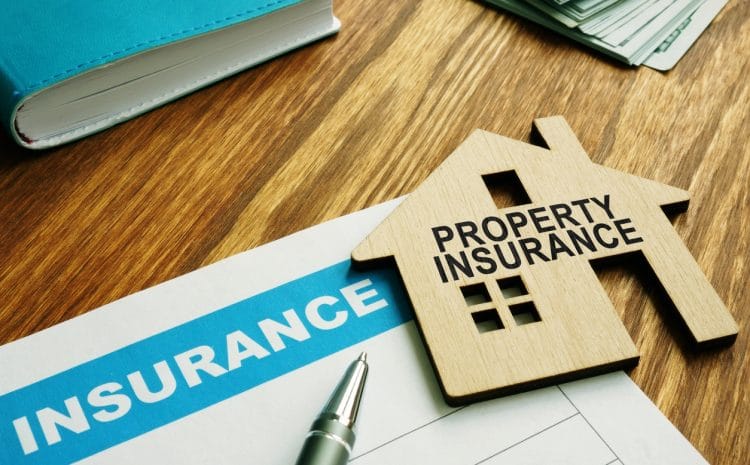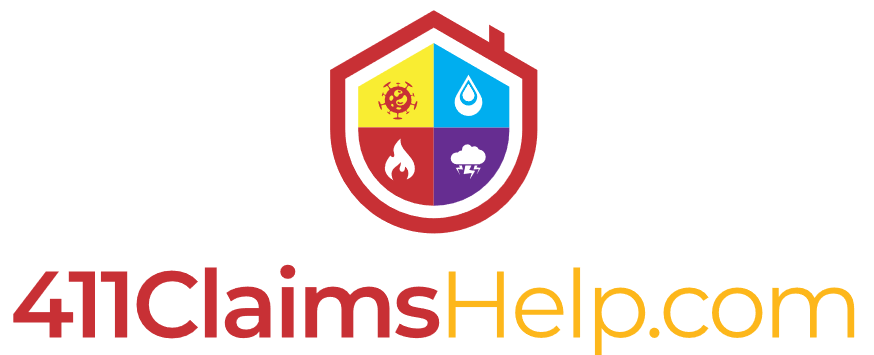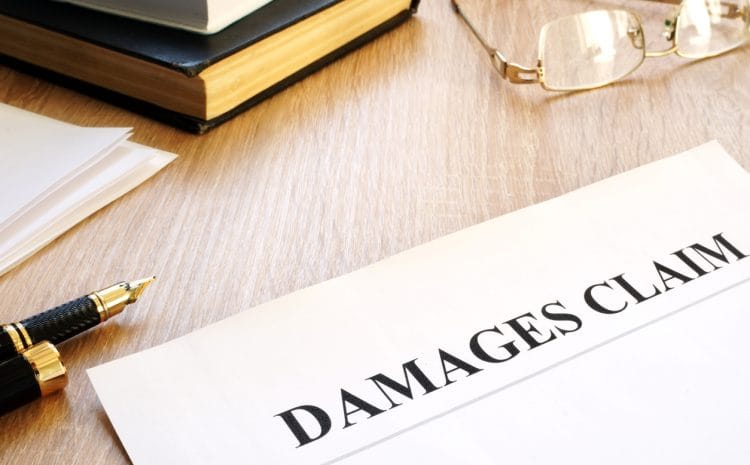Understanding the Types of Property Damage Claims: Florida Estate Owners

Florida’s long southeast coastline makes it susceptible to hurricanes, landfalls, floods, sinkholes, and storm-induced winds. This escalates the risk of property and infrastructure damage every year. Hundreds of people usually go homeless, and many commercial activities came to a halt due to the assault of natural forces in Florida.
However, insurance companies design property damage claims insurance policies to mitigate the financial burden of afflicted people. These policies effectively cover the catastrophic damages caused by natural disasters. Hence, familiarizing yourself with different types of property damage claims in Florida is vital to filing a property damage claims if any damage occurs.
Read on the following comprehensive guide to learn the ins and outs of several types of property damage claims. Knowing which difficulties can come in the way increases your chances of settling the most favorable claim amount, up to the policy’s limit.
Common Causes of Property Damage in Florida
- Hurricanes and storms
Typically, tropical waves originate when the waters in the equatorial Atlantic and Gulf of Mexico boil too much. In mid-August and late October, hurricane season reaches its peak in Florida, causing disaster. Based on the severity and frequency of hurricanes and storms, property damages (e.g., roof damage, asset damage) occur.
- Flooding
Florida’s coastal areas are at high risk because of frequent increased sea levels. Higher sea levels lead to greater coastal flooding, especially during landfalls or cyclones. Flooding causes significant damage to properties and infrastructure, including basements, infrastructure, etc. It increases the risk of power outages in Florida for many days.
- Sinkholes
Miami, Coral Springs, Hialeah, Hollywood, Tampa, Tallahassee, St. Petersburg, St. Augustine, Jacksonville, Orlando, Port St. Lucie, and Fort Lauderdale are sinkhole-prone areas in Florida. Often, sinkholes show early signs, such as cracks in the interior joints, sticking windows and doors, ceiling cracks, land subsidence, wilting plants, sloping floors, etc.
- Fire Damage
Every year, dozens of wildfire incidents burn tens of thousands of acres in certain parts of Florida, including the Sunshine State, Panhandle, etc. However, you can safeguard your property against wildfires with the support of fire-related claims.
- Mold Damage
High humidity levels in Florida cause mold growth. The abundant moisture in the environment provides a suitable atmosphere for algae and mold growth. Exposure to mold infestations may cause a runny nose, watery eyes, difficulty breathing, headache, and fatigue. It also causes structural damage (e.g., sagging walls, crumbling drywall, etc.).
Types of Property Damage Claims in Florida
- Windstorm Insurance Claims
Windstorm insurance claims are a specific type of property damage claims insurance. They compensate policyholders for catastrophic damages caused by gales, hurricanes, tornadoes, and hail. Notably, with Windstorm insurance claims, you get coverage for structural damage to the property. Also, it covers the valuable belongings inside the building. Some insurance riders in Florida allow policyholders to settle claims for detached structures, such as garages and sheds.
- Flood Insurance Claims
Flood insurance claims backed by the National Flood Insurance Program (NFIP) are separate claim benefits from homeowners insurance policies. You should buy a separate flood insurance policy if you live in an area with a high risk of flooding. It usually covers everything from structural damage to the inside belongings of the house, ensuring your peace of mind.
- Sinkhole Damage Claims
To avail of sinkhole damage claims, there should occur physical damage to the insured building, including structural risks, cracks in the foundation, and land subsidence caused by the sinkhole activity. Often, the rider provides reimbursement claims for damaged contents and additional living expenses (the home is uninhabitable). If you recognize sinkhole activity signs, such as cracks in the joints, structural damages, etc., inform your insurance provider. This step will help you organize a physical damage assessment of the insurance adjuster on time.
- Fire Damage Claims
Fire damage claims fall into the category of homeowners insurance policy, ensuring compensation for damages caused by fire and smoke. Usually, they cover personal property, additional living cases (the home is uninhabitable), personal liability, and medical coverage for the victims of your insured property. Also, it covers the damage caused by wildfires.
- Mold Damage Claims
Though mold infestation destroys building products, furnishings, and belongings, coverage benefits are limited for the damage caused by it. You should inquire before buying the policy about its inclusions and exclusions. However, you can follow some preventative measures such as keeping the home dry, proper ventilation, and keeping a watchful eye on the humidity level. If damage occurs, you should collect comprehensive documentation for stronger claim approval.
Steps to File a Property Damage Claim
- Immediate Steps After Property Damage
After the property damage caused by the devastating incident, it is vital to capture photos and videos as evidence. Your comprehensive documentation of the property damage ensures a favorable claim settlement. Furthermore, you should mitigate further damage by spending money on temporary repairs to secure the building’s safety. Remember, your negligence in preventing further loss can cause claim denial.
- Contacting Your Insurance Company
Once the disastrous incident goes away after wreaking havoc in your building, it is vital to inform the insurance company immediately. It strengthens the claim settlement procedure. So, for this, contact your insurance agent to learn how to file a property damage claim. Or, visit the company’s official website for the seamless claim request procedure.
- Assessment by an Insurance Adjuster
Your insurance company will schedule an insurance adjuster’s visit to your building. The insurance adjuster spots hidden or visible signs of the damage, ensuring the maximum benefit for the company. If you discover that the insurance adjuster undervalues the property-casualty incident, you should search for a qualified and licensed public adjuster. They assess the property damage, compile the documentation, and use their expertise to negotiate the claim amount. This way, they secure the maximum payout for the damage restoration.
- Negotiating Settlement
Without a doubt, the insurance company prefers its profit to your welfare. They may try to refuse, reject, or undervalue the claim amount. Avoid feeling obligated to accept their initial settlement offer. Instead, hire a professional public adjuster who advocates for a fair claim settlement offer on your behalf. They use their years of knowledge to ensure you get the accurate claim benefit against the huge property loss.
- Appeals and Disputes
Fear not if the company does not pay you the claim amount or rejects your application. The public adjuster in Florida can help you navigate the complexities of legal issues. They are well-versed in the nuances of the insurance policy, ensuring no misleading information or billing errors during the appeal. With their specialized knowledge, they effectively file a claim within the time limit of the appeal process.
Understanding Florida-Specific Property Damage Laws and Regulations
- Homeowner’s Insurance Law
Several factors, such as location, construction type, and hurricane risk exposure, influence homeowners insurance policies in Florida. A standard policy includes dwelling coverage, personal property damage claim coverage, liability coverage, and additional living expenses.
- Flood insurance requirements
In Florida, the local government marks properties located in FEMA-designated zones as A or V. If your building is within this specific zone, it is at a high risk of being affected by flooding near coastal areas. Usually, for those dealing with a federally backed mortgage, it is mandatory to buy a flood insurance policy.
- Florida’s Statutes on Claims and Disputes
All claims should be settled within 120 days from the date of the claim’s filing, provided no legal issues are involved. The policyholder should get the payout within 20 days from the date of the property damage claims approval. In case of any discrepancies, you can contact the Florida Office of Insurance Regulation (FOIR). It is accountable for ensuring and enforcing compliance with insurance-related statutes. Most importantly, it takes care of ethical insurance practices, ensuring policyholders’s rights and benefits.
- Assignment of Benefits in Florida
An Assignment of Benefits (AOB) is a legal contract that allows the policyholder to transfer their insurance rights to a third party or contractor. However, some recent changes were made by Florida’s Senate Bill 2-A in the law regarding AOB benefits. Policyholders who buy the insurance policy after January 1, 2023, will not be liable to transfer their policy’s benefits to a third party.
Tips for Avoiding Common Property Damage Claim Pitfalls
- Delayed Filing
Avoiding property damage claims is crucial because it can significantly escalate the risk of claim denial. The claim applications with documents should be filed within the property damage claim time limit for easy approval. The delay in settling the claim can increase the risk of failure to file the request within a specific timeframe.
- Inadequate Documentation
Pay attention to the thorough and minute documentation of the property damage claims. Take photos and videos of every hidden or visible sign of the damage. Also, prepare an inventory of the loss to help the insurance adjuster understand the accurate amount of the claim. Additionally, make sure to compile the receipts of temporary repairs with other evidence.
- Underestimating Damage
Hire a property damage claims adjuster to help document the damaged property and write a comprehensive report of the loss. This is essential to prevent the risk of an undervalued claim.
- Not Knowing Your Policy
Understanding the ins and outs of the insurance policy is vital to streamline the insurance complexities. Otherwise, you may fail to take advantage of the essential coverage benefits. Hence, be sure to ask your insurance agent about the policy’s inclusions, exclusions, and deductibles.
- Disagreements with Adjusters
Very often, insurance adjusters miss the visible signs of damages to decrease the payout amount. So if you are dealing with disputes with the insurance adjuster, it is advisable to hire a Florida public adjuster. They negotiate with the insurance company on your behalf to ensure you get a full and fair reimbursement claim amount.
Working with professionals: public adjusters, contractors, and legal help
- Role of a Public Adjuster
Hiring a public adjuster for property damage claims disputes is essential if your compensation is unpaid, denied, or undervalued. They assist policyholders in securing the maximum payout they deserve, advocating their rights, and compelling the insurance providers to fulfill their obligations. This way, they ensure the settlement of your claim promptly and effectively.
- Selecting a Reputable Contractor
Contact a reputable contractor for property damage claims insurance. They guarantee professional repair or restoring the building so that you can return to normalcy as soon as possible. However, you should always verify their credentials, including backgrounds, call references, etc. This way, you ensure you hire a real person.
- Legal Help for Property Damage Claims
Book a consultation with a trustworthy lawyer who specializes in property damage claims for legal actions. They file a lawsuit against the at-fault insurance provider to assist you in claim denials or low settlements.
Conclusion
The process for obtaining fair and full compensation for property damage claims may vary depending on the severity of the incident and damage. It’s essential to maintain comprehensive documentation of the property loss and to seek a public adjuster’s advice if necessary. They ensure you receive favorable compensation for your property damage claims resulting from a catastrophic incident. Here’s hoping you have gained valuable insight into different types of claim settlement processes.



